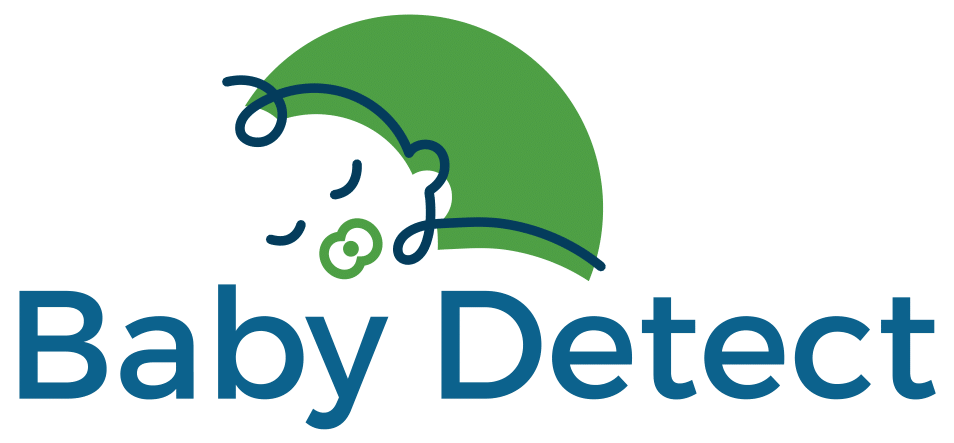Includes:
· Homocystinuria – MTHFR gene – Also known as: Homocystinuria due to deficiency of N(5,10)-methylenetetrahydrofolate reductase activity; methylenetetrahydrofolate reductase deficiency; MTHFR deficiency – OMIM#236250 https://omim.org/entry/236250
· Homocystinuria, cblE type – MTRR gene – Also known as: Methylmalonic aciduria and Homocystinuria, cblE type; Homocystinuria-megaloblastic anemia, cblE complementation type; Vitamin B12-responsive homocystinuria, cblE type; Methylcobalamin deficiency, cblE type; Disorders of intracellular cobalamin metabolism, cblE defect – OMIM#236270 https://omim.org/entry/236270
· Homocystinuria, cblG type – MTR gene – Also known as: Homocystinuria-megaloblastic anemia, cblG; Methylcobalamin deficiency, cblG type; Methionine synthase deficiency; Disorders of intracellular cobalamin metabolism, cblG defect – OMIM#250940 https://omim.org/entry/250940
· Methylmalonic aciduria and Homocystinuria, cblC type – MMACHC gene – Also known as: Methylmalonic aciduria and Homocystinuria, cblH formely; Disorders of intracellular cobalamin metabolism, cblD defect – OMIM#277400 https://omim.org/entry/277400
· Methylmalonic aciduria and Homocystinuria, cblD type – MMADHC gene – Also known as: Homocystinuria, cblD type variant; cblD- combined MMA; cblD-isolated MMA; Disorders of intracellular cobalamin metabolism, cblD defect – OMIM#277410 https://omim.org/entry/277410
· Methylmalonic aciduria and Homocystinuria, cblF type – LMBRD1 gene – Also known as: Methylmalonic aciduria and Homocystinuria due to Vitamin B12- release defect; Vitamin B12- lysosomal release defect; Vitamin B12 Storage disease; Cobalamin F Disease; Disorders of intracellular cobalamin metabolism, cblF defect – OMIM#277380 https://omim.org/entry/277380
· Methylmalonic aciduria and Homocystinuria, cblJ type – ABCD4 gene – Also known as: Disorders of intracellular cobalamin metabolism, cblJ defect – OMIM#614857 https://omim.org/entry/614857
· Methylmalonic aciduria and Homocystinuria, cblX type – HCFC1 gene – Also known as: Disorders of intracellular cobalamin metabolism, cblX defect; Intellectual developmental disorder, X-linked 3; XLID3; Mental retardation, X-linked 3; MRX3 – OMIM#309541 https://omim.org/entry/309541
1. The disease:
Remethylation defects are rare inherited disorders in which impaired remethylation of homocysteine to methionine leads to accumulation of homocysteine and perturbation of numerous methylation reactions. This group of diseases is complex with different classification and the information around it is still being built up, so talk to your metabolic doctor for up-to-date data and treatment.
2. The Symptoms:
the clinical presentation of patients suffering from remethylation disorders reveals no specific, distinct signs and symptoms but rather highlight that these conditions affect multiple systems and thus often presents in a rather multifaceted manner. Lack of early signs or symptoms does not exclude the diagnosis. Nevertheless, a few patterns of clinical presentations can be identified:
- Most prominently, the central and peripheral nervous system and the bone marrow are affected. Developmental and neurocognitive impairment, feeding problems, neurological symptoms including seizures, movement disorders, abnormal muscle tone, visual impairment, neuropathy and haematological abnormalities are present in the majority of patients. In many patients, renal manifestations, e.g.,atypical haemolytic uraemic syndrome (HUS) or glomerulopathy, mostly related to microangiopathy, have been identified.
- Clinical presentations may vary considerably. Severe acute encephalopathy, macrocytic anaemia, atypical HUS, cardiopulmonary signs, subacute combined degeneration of the cord or psychiatric symptoms, each isolated or in combination with other symptoms may be present. Therefore, in particular, a combination of neurological and haematological symptoms, often in the presence of failure to thrive or feeding difficulties should raise suspicion of a remethylation disorder.
3. Actions to take in case of early diagnosis:
- Infants with a positive genetic test (having 2 pathogenic variants or 2 copies of a single pathogenic variant in one of the gene referred above, except the HCFC1 gene which is X linked, so 1 hemizygous pathogenic variant is enough – a mutation in the X chromosome of males). Of note, for the MTHFR deficiency, the causative molecular abnormality has nothing to do with the polymorphism C677T at the MTHFR gene. Most of the real mutations are LoF variants in the MTHFR gene.
- Babies should continue breastfeeding and avoid baby formulas. Early treatment is essential in preventing chronic symptoms.
- Biochemical correlation is essential for confirming diagnosis with plasma quantitative amino acids and plasma homocysteine levels (Hcy). Plasma or urinary methylmalonic (MMA) levels. Biochemical NBS with tandem mass spectrometry can also help (can show increased C3 and low or high methionine).
- Remethylation disorder is a group of lifelong diseases that requires lifetime management and regular follow-up with a metabolic physician and dietician, a part from a multidisciplinary approach to care.
- Initiate treatment with parenteral hydroxocobalamin without delay in any suspected remethylation disorder; it significantly improves survival and incidence of severe complications. Betaine treatment in individuals with MTHFR deficiency; it improves the outcome and prevents disease when given early.
- Treatment of most of the cobalamin/ remethylation defects revolves around the administration of high-dose betaine, in combination with methionine, pyridoxine, parenteral OH-cbl (Vitamin B12) and folic or folinic acid supplements, with some differences related to specific enzymatic defects or genes. For more details, read more about the specific gene or metabolic disease, which your baby was diagnosed with.
- Genetic counseling is highly recommended for family planning and evaluation of at-risk family members such as siblings.
4. For more information
Orphanet:
- https://www.orpha.net/consor4.01/www/cgi-bin/Disease_Search.php?lng=EN&data_id=465&Disease_Disease_Search_diseaseGroup=MTHFR-deficiency&Disease_Disease_Search_diseaseType=Pat&Disease(s)/group%20of%20diseases=Homocystinuria-due-to-methylene-tetrahydrofolate-reductase-deficiency&title=Homocystinuria%20due%20to%20methylene%20tetrahydrofolate%20reductase%20deficiency&search=Disease_Search_Simple
- https://www.orpha.net/consor4.01/www/cgi-bin/Disease_Search.php?lng=EN&data_id=11308&Disease_Disease_Search_diseaseGroup=cobalamin-defects&Disease_Disease_Search_diseaseType=Pat&Disease(s)/group%20of%20diseases=Methylmalonic-acidemia-with-homocystinuria–type-cblC&title=Methylmalonic%20acidemia%20with%20homocystinuria,%20type%20cblC&search=Disease_Search_Simple
- https://www.orpha.net/consor4.01/www/cgi-bin/Disease_Search.php?lng=EN&data_id=710&Disease_Disease_Search_diseaseGroup=cobalamin-defects&Disease_Disease_Search_diseaseType=Pat&Disease(s)/group%20of%20diseases=Methylmalonic-acidemia-with-homocystinuria&title=Methylmalonic%20acidemia%20with%20homocystinuria&search=Disease_Search_Simple
- https://www.orpha.net/consor4.01/www/cgi-bin/Disease_Search.php?lng=EN&data_id=11310&Disease_Disease_Search_diseaseGroup=cobalamin-defects&Disease_Disease_Search_diseaseType=Pat&Disease(s)/group%20of%20diseases=Methylmalonic-acidemia-with-homocystinuria-type-cblF&title=Methylmalonic%20acidemia%20with%20homocystinuria%20type%20cblF&search=Disease_Search_Simple
- https://www.orpha.net/consor4.01/www/cgi-bin/Disease_Search.php?lng=EN&data_id=22453&Disease_Disease_Search_diseaseGroup=cobalamin-defects&Disease_Disease_Search_diseaseType=Pat&Disease(s)/group%20of%20diseases=Methylmalonic-acidemia-with-homocystinuria–type-cblJ&title=Methylmalonic%20acidemia%20with%20homocystinuria,%20type%20cblJ&search=Disease_Search_Simple
- https://www.orpha.net/consor4.01/www/cgi-bin/Disease_Search.php?lng=EN&data_id=22454&Disease_Disease_Search_diseaseGroup=cobalamin-defects&Disease_Disease_Search_diseaseType=Pat&Disease(s)/group%20of%20diseases=Methylmalonic-acidemia-with-homocystinuria–type-cblX&title=Methylmalonic%20acidemia%20with%20homocystinuria,%20type%20cblX&search=Disease_Search_Simple
Biblio:
- Huemer M, Diodato D, Schwahn B, et al. Guidelines for diagnosis and management of the cobalamin-related remethylation disorders cblC, cblD, cblE, cblF, cblG, cblJ and MTHFR deficiency. J Inherit Metab Dis. 2017;40(1):21-48. PMID: 27905001.
- https://www.ncbi.nlm.nih.gov/books/NBK1328/
